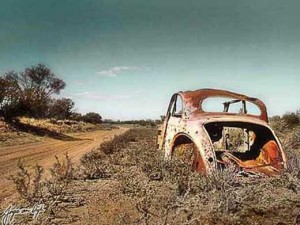We all know those car buyers who can’t wait for the newest models to show up at their local dealership. My own uncle felt that something was wrong with life itself if he wasn’t in a position to trade in at least every other year, if not sooner. But while there are still plenty of “rapid replacers,” a new study suggests that Americans are keeping their cars significantly longer than before.
Perhaps the findings by the California-based market research firm, AutoPacific, Inc., should come as no surprise, whether you site the economy, the fact that cars are lasting longer or simply changes in public attitudes. In some overseas markets, like Japan, there’s been a steady social turn away from the automobile, though there’s little indication that Americans have yet fallen out of love with their cars.
Nevertheless, “People who previously bought a new car every one or two years have significantly scaled back their purchasing, and those who before bought every three to four years are now waiting at least an additional year,” said George Peterson, president of AutoPacific.
In 2005, just over 46% of new car buyers indicated they wouldn’t be shopping for a new vehicle for four years or more. In the just completed survey that number stands at 59% — an increase of almost 13%. At the same time, the number of people intending to replace their vehicle within the next two years has fallen sharply.
The study found another reason why folks are holding onto vehicles longer: manufacturers have sharply scaled back the rebates, subsidized leases and other incentive programs that encouraged owners to trade in frequently.
|
When Will You Acquire Your Next Vehicle? |
||||
| 2009 | 2008 | 2006 | 2005 | |
| 6 Months to 1 Year | 1.49% | 2.54% | 2.54% | 3.61% |
| 1 to 2 Years | 5.68% | 10.29% | 9.95% | 7.82% |
| 2 to 3 Years | 11.79% | 15.59% | 17.16% | 16.21% |
| 3 to 4 Years | 21.00% | 25.34% | 27.24% | 26.32% |
| More Than 4 Years | 58.97% | 44.76% | 43.55% | 46.04% |
|
Survey was not conducted in 2007. These data are based upon results from AutoPacific’s national Vehicle Satisfaction Survey. Over 32,000 respondents provided input into this research. |
||||
“We’ll not be seeing the frequent replacement pattern brought about by strong incentives and financing programs that made it easy and financially reasonable over the last decade for consumers to get into a new car frequently,” said Peterson. “This may also tell us that consumers will be putting a higher priority on vehicles with a reputation for quality and durability that meets not only their short-term needs, but also their long-term expected needs.”
A recent Internet study by AutoPacific underscored the wariness of the car-buying public. A full 72% of potential customers aid they planned to wait at least a year before investing in a new vehicle.


We’ve found the same thing in a recent 3M Car Care survey — and also saw that the car owners are doing more of their maintenance themselves to keep these older cars running. Full survey results are available at http://multimedia.mmm.com/mws/mediawebserver.dyn?6666660Zjcf6lVs6EVs66s8lRCOrrrrQ-